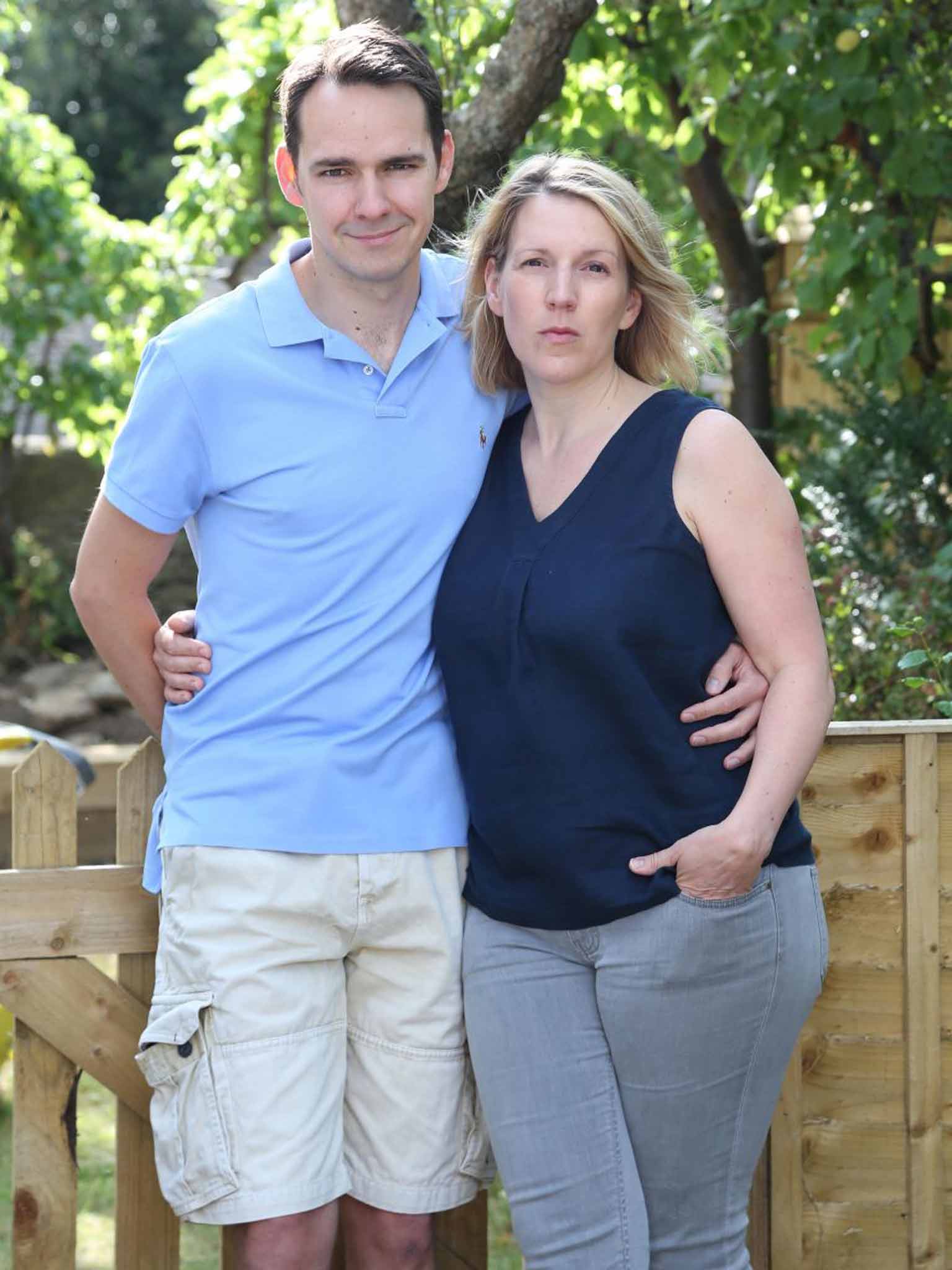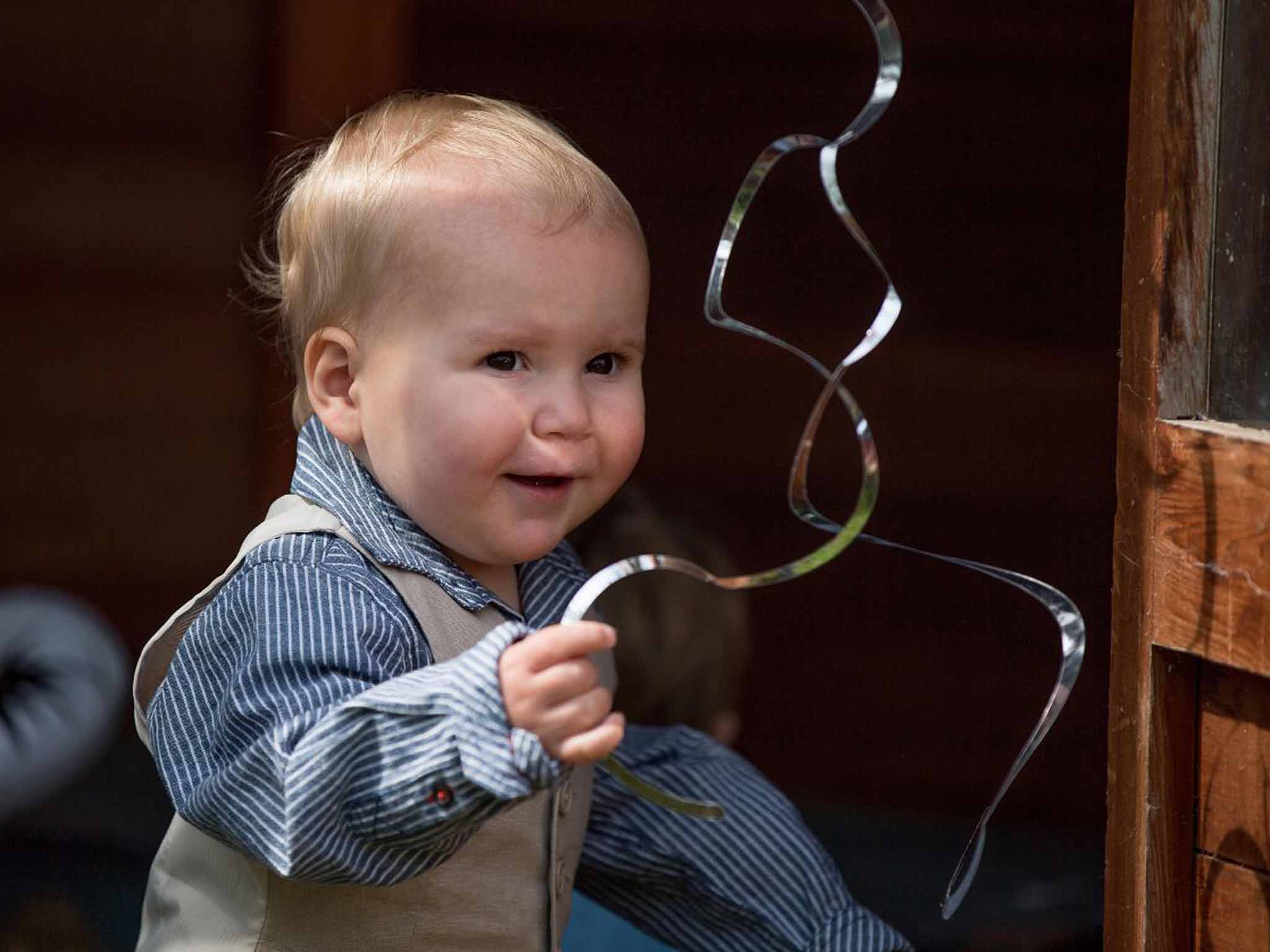How the death of their baby has led one couple to relieve the distress of other sick children
When their beloved toddler son died suddenly, Hannah and David Cole vowed to find meaning in their loss. They tell Anthea Gerrie about their campaign in his memory

Your support helps us to tell the story
From reproductive rights to climate change to Big Tech, The Independent is on the ground when the story is developing. Whether it's investigating the financials of Elon Musk's pro-Trump PAC or producing our latest documentary, 'The A Word', which shines a light on the American women fighting for reproductive rights, we know how important it is to parse out the facts from the messaging.
At such a critical moment in US history, we need reporters on the ground. Your donation allows us to keep sending journalists to speak to both sides of the story.
The Independent is trusted by Americans across the entire political spectrum. And unlike many other quality news outlets, we choose not to lock Americans out of our reporting and analysis with paywalls. We believe quality journalism should be available to everyone, paid for by those who can afford it.
Your support makes all the difference."If we can't have our charmed life any more, let's make it an amazing one," Hannah Cole entreated her husband David, as they stood, stunned, in a hospital ward in June last year.
It was an appeal to make sense of the bleakest of unexpected events. They had just lost their 16-month-old son Oscar to a random infection they never imagined would be life-threatening, and Hannah was clutching at a way forward.
"Your first thought is: 'How can I continue to go on living when my child is no longer on this planet?' says Hannah, who admits to preoccupations such as "wanting to be the hostess with the mostest" in the aforementioned charmed life. "We had two lovely children, a beautiful home, good jobs, a nice circle of friends – we couldn't imagine this could ever have happened to our strong, happy son."
Indeed, there were no concerns for Oscar, born in February 2013 weighing 9lbs 6oz and apparently bursting with health until, at 15 months, he started spiking repeated fevers. "We were in and out of the GP's surgery in April and May last year, and on 1 June he was admitted to hospital because they couldn't figure out what was wrong."

It was Hannah herself who found the clue as she held Oscar tight against her body to keep him still while a blood sample was taken. "I felt a lump on his back, which proved to be osteomyelitis, an infection of the bone in his spine."
A six-week course of antibiotics was prescribed and Oscar was discharged a few days later, after a Picc line (a central catheter) had been inserted. But when the line became infected, he was readmitted to the John Radcliffe Children's Hospital.
"On day 14, he became very unwell – we think it must have been because encephalitis was kicking in, though no-one knew that at the time – and within days he was dead," says Hannah, who remembers that, unusually, they were both at the the hospital: "Our daughter Holly, with whom one of us always stayed home while the other was at the hospital, was sleeping over with my parents."
But even though she had been called in urgently, she admits: "It came as a terrible shock to be told: 'You're not going to be taking Oscar home.' The most frightening nightmare imaginable was playing out in front of us. It was an almost physical sensation, which made me understand why people describe it as like being hit by a train.
She adds: "My parents came to the hospital, and it was as horrific as you might expect, with Oscar covered in tubes, but the nurses laid him on a duvet and he looked beautiful."
Oscar was kept on life support until Holly could be brought in to say goodbye to her brother. "We took advice not to decorate the words and tell her 'Oscar's asleep' or 'He's passed on', but simply to say: 'Oscar has died and we will never see him again'." Then everyone went back to the Coles' house and left David and Hannah to spend a last couple of hours alone with Oscar. They held him until his last heartbeat, and then said goodbye.
"We've asked ourselves many times if we left too soon," Hannah says. "But he was dead and Holly was at home and we felt that night, of all nights, we should be there to put her to bed. We had a thanksgiving for Oscar three weeks later, and then a private funeral, and he's buried in the churchyard in our village."
Since then, the couple, who live in the Cotswold stone village of Kirtlington and work in software sales and marketing, have been bent on their mission for the "amazing" life they agreed on in the hospital ward: "By that, we meant achieving something remarkable in Oscar's name – fundraising, making a difference, having an impact. We aspire to being able to reflect in 20 years on something important we have been able to accomplish."
They knew early on that whatever they did wouldn't be directly concerned with what happened to Oscar, because those particular events were so unusual; there wouldn't be any point in fighting for a cause that might affect one in a million. Instead, their charity, called Thinking Of Oscar, is designed to be as broad as possible and is directed at improving the experience of children and their families in hospital.
After organising a Christmas delivery of books and toys to hospitals, the couple set about raising money to help circumvent the most upsetting aspect of Oscar's treatment: "He had to have dozens of blood tests taken and cannulas inserted over the course of two-and-a-half weeks, and getting his hands and feet prodded for those tests was the one thing which really distressed him," explains Hannah.
David read about a device called an Accuvein, which illuminates tiny veins that, in babies, are obscured by their rolls of fat, making the insertion of needles more difficult. "We could immediately see the benefit – if it had only been available to Oscar," explains David. "It was so horrible for him to go through the procedure of having anaesthetic put into his hands and having them wrapped in cling film for a while before trying to take blood. If they can't find the veins in a baby's hands, they go through the same procedure with their feet, and if they still can't find one, they go to the head."
In fact, 87 NHS departments have purchased an AccuVein, with a further 48 awaiting funding, according to UK distributors Q Medical, though they do not necessarily go to children's wards. The Coles have funded four for the hospital where Oscar was treated; they are now raising £100,000 for a pediatric procedures unit to alleviate the other trauma faced by young children, who currently have to be wheeled to the main hospital when a general anaesthetic is required: "They may get bumped from the queue after they have been nil by mouth for six hours and then have to go through that whole process all over again," adds David.
As a private act of remembrance, the couple is creating an area in their garden in which to plant roses and other yellow and blue flowers that were sent at the time of Oscar's death: "We found it helpful to be outside when Oscar died, and gardening is something we didn't have time for in our old life, but are making time for, in Oscar's memory," says David.
The couple have also achieved a very personal ambition for Holly, now four-and-a-half, not to remain an only child. Barney was born on 26 May this year, bringing new life into a house Hannah admits has been "very quiet and very tidy since Oscar died".
"It's nice having a bit more of a hubbub," says Hannah, "and Holly hasn't had any problems adjusting. She misses her brother deeply and grieves like we do. But although that could be triggered, as it is for us, by a piece of music or a little blond head, she's a happy girl most of the time.
"Although it's not a path we would have chosen, every aspect of our life has been richer since Oscar died, in spite of the massive void he has left. We never come home and moan about the traffic; we know how lucky we are to have each other and our kids."
For more information, visit thinkingofoscar.com
Join our commenting forum
Join thought-provoking conversations, follow other Independent readers and see their replies
Comments